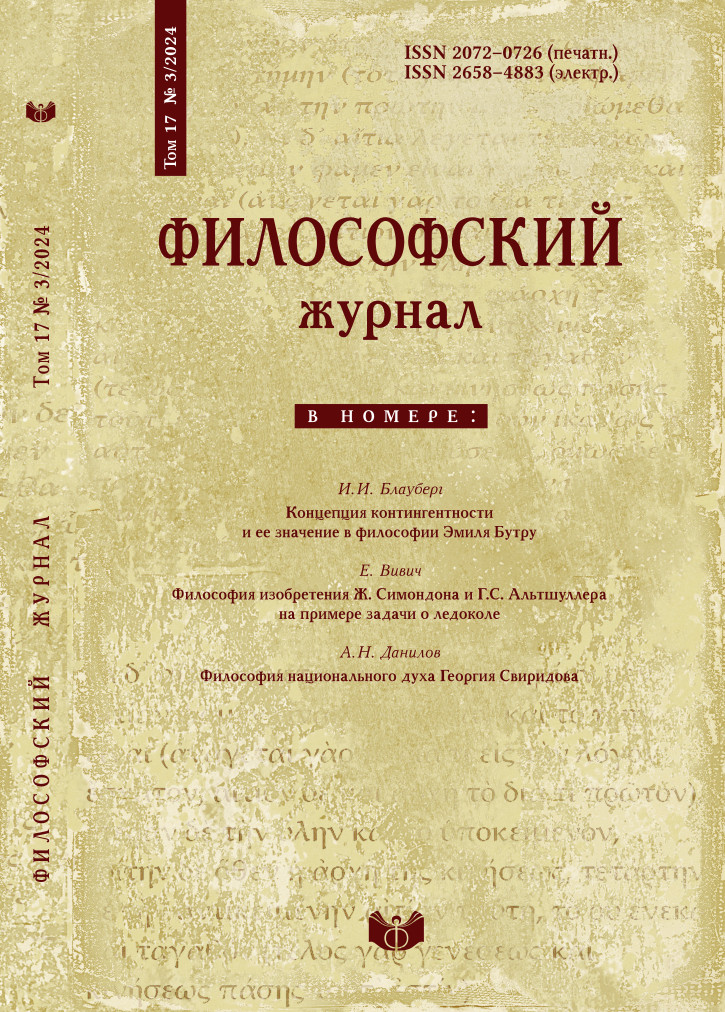Dialectics and transduction in the philosophy of Gilbert Simondon
DOI:
https://doi.org/10.21146/2072-0726-2024-17-3-76-90Keywords:
Simondon, Hegel, dialectics, analectics, transduction, individuation, concretization, technical object, ontogenesisAbstract
The article explores the question of Gilbert Simondon’s (1924–1989) attitude to dialectics and the influence of G.W.F. Hegel’s philosophy on his theory of individuation. Simondon’s philosophy is seen as a coherent system with its own method and original conceptual apparatus, developed also in the course of a critical revision of Hegelian dialectics. It is noted that in a number of cases the French philosopher describes processes, connections, relations as dialectical, in others as non-dialectical. The use of common terms (e.g. “abstract” and “concrete”) is analyzed in order to discover the influence of Hegel’s ideas on Simondon’s philosophy. In addition to his dissertations, which are widely recognized internationally, lesser-known recent publications from the philosopher’s archive are also drawn upon. On the basis of these texts, it is shown that in his philosophy of technology, in an attempt to disassociate himself from certain dialectical categories, including such essential ones as “negation”, “sublation”, and the triad “thesis – antithesis – synthesis”, he developed an approach to which he gave the name of analectic. Simondon’s concept of transduction is described, in which one can see the main difference between his understanding of the processes of change and development and that proposed by Hegel. At the same time, it is noted that although the three levels of technique (element, individual and ensemble) and the three “phases of being” (pre-individual, individual, transindividual) are seen by Simondon as a transductive unity, in some aspects a dialectical relationship is maintained between them. It is concluded that at a superficial glance Simondon’s philosophy has little in common with Hegelian dialectics, but on closer examination of the underlying foundations of Simondon’s approach it becomes apparent that it is implicit in it.






